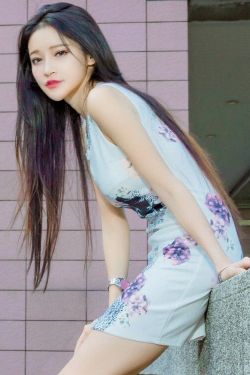剧情介绍
而鹿然的学校生活明(mí(🏹)ng )显适应得很(hěn )好,一进餐厅,就不断地(⛷)有人跟她打招呼,而她也热切回应。
为了在圣诞之前找寻到他们的礼物,他们开始(🏓)了一项任务。而这项任务足以与人类的登月之旅相媲美。
赵文祈带着(zhe )人往花园走去,他已经提前让宫人去看过了,确定(🆑)没有宫妃在里面:你们都是我弟弟,也没谁借谁的光。
影片改编自获得第三届豆瓣阅读征文大赛(🏗)(sài )科幻组首奖的(de )科幻小说《追逐太阳的(🉐)男人》,小说权(quán )益以百万价格售给新(🥙)丽(lì )影业,豆瓣将与新丽影业联合制片。
In Bettina Büttner’s exquisitely lucid documentary Kinder (Kids), childhood dysfunction, loneliness, and pent-up emotion run wild at an all-boys group home in southern Germany. The children interned here include ten-year-olds Marvin and Tommy. Marvin, fiddling with a mini plastic Lego sword, explains matter-of-factly to the camera, “This is a knife. You use it to cut stomachs open.” Dennis, who is even younger, is seen in a hysteric fit, mimicking some pornographic scene. Boys will be boys, but innocence is disproportionately spare here. Choosing not to dwell on the harsh specifics, Büttner reveals the disconcerting manner in which traumatic episodes can manifest themselves in the mundane — a game of Lego, Hide and Seek, or Truth or Dare. Filmed in lapidary black-and-white, Büttner’s fascinating film sheds light on childhood from the boys’ characteristically disadvantaged perspective — one not yet fully cognizant — leaving much ethically to ponder over
不过村里的妇人好久没回娘家,回(huí )来晚一些(⛪)是正常的。渐渐地外头(tóu )的天色暗了下(xià )来,张采萱往外头看了好几次,肃凛,不会出(🛐)事?(📰)
陈(⭕)医生大步走过来,拿着听诊器给姜晚(wǎn )检查身体,又抬了下她(💰)(tā )的眼皮,便从医药箱里取出(🚽)了体温计(jì(💨) ),递出去:风寒感(gǎn )冒,发(🍟)烧有些高(🦑),先给她量□□温。
胡彻忙抬起(qǐ )头,露(lù )出一张青青紫紫的脸,只能大概看得清五官,不(bú )看秦肃凛和张(zhāng )采萱,只看着村长,期(📍)待的问:大叔,这(zhè )个(gè )砍多少才能算了了此事?
事实(🥟)证明,石化后的傅瑾南完全承受不了小胖子的(📃)重(⚡)量。
稽毒警探播放地址
网友评论
=AA=回复:故事总觉(🦆)得过度生硬,有些演(🥐)员表演也生硬。总体硬拗的感觉。不(bú )自(zì )然。除了我女神(🌀)。
深蓝色的老鹰:一波三折靠结尾
Kiwi:麻麻去电影院看过(guò )说还口以,但是看得我蛋(dàn )疼。我想问男人(rén )都喜欢这(🐯)(zhè )样的疯女人吗?!真想大嘴巴抽女猪啊,这是怎样的世界,我果(🔍)然应该隐居啊啊啊啊。。ps,风景很美,但是北欧(⛳)签这么容(róng )易么??pps,我那个正上幼儿园(🏢)的表妹居然(rán )给看(😮)哭了O_o|||||
弓虽:真是越拍越烂
了不起的屁了:愿时光保持不变 让我继续爱你
令和狸:主演: 陈姝 / 金为珩 / 曾晨(chén ) / 周大勇 / 周国宾 / 许榕真
黄鼠狼打羽毛球:再美的过去也回不去,别回头。
花不缺:为什么看不了 还要VIP
喜欢看【稽毒警探】的人也喜欢
大陆剧• 热播榜
- 1双语字幕海上生明月
- 2高清Im Alleingang - Die Stunde der Krähen
- 3在线播放我会回来过圣诞
- 4在线播放至尊无上
- 5高清沃兰德探长系列:复仇 - 电影
- 6双语字幕熊山冒险
- 7在线观看冷血条子 - 电影
- 8正片An All American Fairytale
- 9高清救世主
- 10高清A Study in Gravity
【本月 • 收藏榜】
- 1中文字幕迷夢空間
- 2HD最后一个救援
- 3国语中字我家买了动物园
- 41080P情欲电影院
- 5中文字幕迈阿密特别行动
- 6国语中字黑暗中摸索
- 71080P剑神传(上集) - 电影
- 8第20集糖果与吻
- 9高清너에게 하고 싶은 말
- 10高清The Topless War











